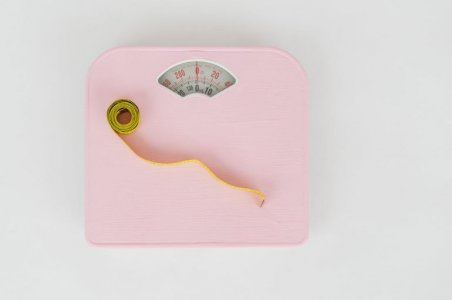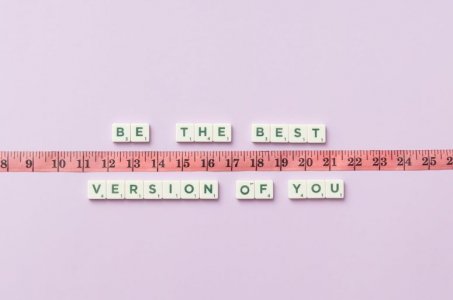Breaking generational trauma: Four stories from women who grew up with diet-obsessed parents
- Replies 5
Content warning: This article covers diet culture and disordered eating, which may be distressing to some readers.
Diet culture has been around for years. But these days, it seems that it’s become more rampant in society.
Everywhere we look, social media posts and ads tell us we need to ‘fit in’ a certain way to be happy and successful. Unfortunately, this kind of culture gets passed down from one generation to the next.
Such is the story of four women who bravely shared their experiences of growing up with diet-obsessed parents.
Stella was surrounded by diet culture as a young teen. She watched her mum try different fad diets constantly – some of which were too extreme. This influenced Stella, who, only recently, had the chance to break free from this generational cycle and find a healthy balance.
She doesn’t blame her mum, though. She knows that her mother is also a victim of diet culture.
Gloria, on the other hand, felt that her mum was a big influence in passing down unrealistic weight expectations to her. As an Asian woman, she was surrounded by people telling her that if she wasn’t slim, thin, or skinny, she was considered ‘undesirable’.
Of course, there are cultural influences at play here. So, when Gloria couldn’t fit into the petite stereotype, her mum started projecting. She would resort to calling her daughter names, and even chastised Gloria’s sister for not losing pregnancy weight. This happened six weeks after the sister gave birth.
Nevertheless, Gloria focused on how she felt and her overall health rather than the numbers she saw on the scales. Because she took care of herself and broke the harmful cycle, Gloria only felt empathy towards her mother. She said that she knows how difficult it is to break free from forced perceptions ‘all too well’.
Priya, a young mom, revealed that she still feels ‘uncomfortable’ whenever she walks past the weight scales in the bath. Although she’s managed to stop herself from constantly checking her weight, she knows that her mum hasn’t done the same yet.
Margot and her sister have struggled with body image issues their whole lives. They’re both trying to undo the diet conditioning their parents projected onto them.
Although both of them are in their late 30s now, they’ve only recently found the courage to seek professional help. It’s an expensive and lengthy journey, but they’re willing to go through it to heal themselves fully.
These four women represent thousands of others in Australia who are still trying to heal from diet culture’s impact on their body image and their relationship with food.
And they all share a common pattern: a restrictive perception of food, weight and health that was pushed onto them during their childhood.
The Butterfly Foundation, an Australian organisation that helps people heal their harmful perceptions of food and weight, said that the way parents talk about their bodies (or even other people’s weight) and the values they place on appearances, transfer to their young ones.
Eating Disorders Victoria, an organisation that guides people to recovery, found that dieting is the ‘single most important behavioural risk factor for developing an eating disorder’. You can find more information about their research here.
Dr Kirsty Seward, a dietician, behavioural scientist, and body image coach, said that 99 per cent of her clients have been affected by diet ideologies – especially the ones that have been passed down generationally.
‘It’s too common. I remember only just a week ago discussing this exact topic with my group coaching clients – some of my clients were vulnerably sharing some of the key moments throughout their childhood where they felt diet culture messaging had impacted them,’ she explained.
Dr Seward also said that having a negative outlook on your body and appearance is related to low self-esteem. This, of course, impacts the number of times we take risks and opportunities. It limits our freedom to live our lives.
Fortunately, we are seeing a positive shift lately. And that is all thanks to the countless discussions, advocacies, and research that organisations and experts have put out.
If you or anyone you know needs help, contact The Butterfly Foundation’s Support line.

What did you think about this story, members? Please remember to eat healthily and consult your GP if you have concerns related to your weight or health.
Diet culture has been around for years. But these days, it seems that it’s become more rampant in society.
Everywhere we look, social media posts and ads tell us we need to ‘fit in’ a certain way to be happy and successful. Unfortunately, this kind of culture gets passed down from one generation to the next.
Such is the story of four women who bravely shared their experiences of growing up with diet-obsessed parents.
Stella was surrounded by diet culture as a young teen. She watched her mum try different fad diets constantly – some of which were too extreme. This influenced Stella, who, only recently, had the chance to break free from this generational cycle and find a healthy balance.
She doesn’t blame her mum, though. She knows that her mother is also a victim of diet culture.
Gloria, on the other hand, felt that her mum was a big influence in passing down unrealistic weight expectations to her. As an Asian woman, she was surrounded by people telling her that if she wasn’t slim, thin, or skinny, she was considered ‘undesirable’.
Of course, there are cultural influences at play here. So, when Gloria couldn’t fit into the petite stereotype, her mum started projecting. She would resort to calling her daughter names, and even chastised Gloria’s sister for not losing pregnancy weight. This happened six weeks after the sister gave birth.
Nevertheless, Gloria focused on how she felt and her overall health rather than the numbers she saw on the scales. Because she took care of herself and broke the harmful cycle, Gloria only felt empathy towards her mother. She said that she knows how difficult it is to break free from forced perceptions ‘all too well’.
Priya, a young mom, revealed that she still feels ‘uncomfortable’ whenever she walks past the weight scales in the bath. Although she’s managed to stop herself from constantly checking her weight, she knows that her mum hasn’t done the same yet.
Margot and her sister have struggled with body image issues their whole lives. They’re both trying to undo the diet conditioning their parents projected onto them.
Although both of them are in their late 30s now, they’ve only recently found the courage to seek professional help. It’s an expensive and lengthy journey, but they’re willing to go through it to heal themselves fully.
These four women represent thousands of others in Australia who are still trying to heal from diet culture’s impact on their body image and their relationship with food.
And they all share a common pattern: a restrictive perception of food, weight and health that was pushed onto them during their childhood.
The Butterfly Foundation, an Australian organisation that helps people heal their harmful perceptions of food and weight, said that the way parents talk about their bodies (or even other people’s weight) and the values they place on appearances, transfer to their young ones.
Eating Disorders Victoria, an organisation that guides people to recovery, found that dieting is the ‘single most important behavioural risk factor for developing an eating disorder’. You can find more information about their research here.
Dr Kirsty Seward, a dietician, behavioural scientist, and body image coach, said that 99 per cent of her clients have been affected by diet ideologies – especially the ones that have been passed down generationally.
‘It’s too common. I remember only just a week ago discussing this exact topic with my group coaching clients – some of my clients were vulnerably sharing some of the key moments throughout their childhood where they felt diet culture messaging had impacted them,’ she explained.
Dr Seward also said that having a negative outlook on your body and appearance is related to low self-esteem. This, of course, impacts the number of times we take risks and opportunities. It limits our freedom to live our lives.
Fortunately, we are seeing a positive shift lately. And that is all thanks to the countless discussions, advocacies, and research that organisations and experts have put out.
If you or anyone you know needs help, contact The Butterfly Foundation’s Support line.
Key Takeaways
- Diet culture is often passed down from generation to generation.
- This can hurt how we view our bodies and our relationship with food.
- It is possible to break free from the cycle, but it takes time and effort.
- Seek professional help, if needed.









